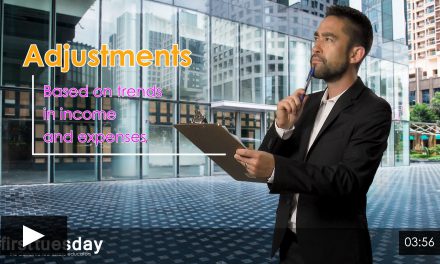Our proposal: Amend Proposition 13 (Prop 13) to trigger property reassessment when an entity owning a property transfers at least 20% of the ownership interest in the entity, thereby ensuring commercial property owners and wealthy investment groups pay their equitable share of local taxes.
Why: Prop 13, also known as the People’s Initiative to Limit Property Taxation, was voted into California’s Constitution in 1978. It caps property taxes at 1% of the property’s assessed value and limits annual increases to 2%.
The property is reassessed upon a change in ownership. Here, the county assessor establishes a new base value equal to the value of the property at the time of transfer, which remains with the property until the next transfer.
However, not all transfers trigger reassessment.
One significant exclusion from Prop 13 reassessment is the change of ownership interest in a limited liability company (LLC) — or other legal entity — which does not constitute a change in ownership of the real estate owned by the entity, unless more than 50% of the membership interest is transferred to a single individual or entity. [Calif. Revenue & Tax Code §64]
Thus, an entity vested in title to real estate may strategically divide the sale of its membership interests to successfully transfer ownership of a property for all purposes, except the vesting, outside of the porous radar of Prop 13.
This allows buyers of property vested in corporations, LLCs and partnerships to avoid paying their fair share of property taxes, depriving communities of millions in tax revenue.
In stark contrast to investors of income properties, homebuyers are bound to pay property taxes based on the current value of a home on the date they purchase it. Unlike investors, homeowners are typically unable to fractionalize their acquisition of ownership.
With change of ownership being a key to property reassessment, amending how a change in ownership is defined under Prop 13 is crucial. For the many income property owners (and their attorneys) privy to Prop 13’s ambiguous change-of-ownership rules, Prop 13 merely acts as an assessment pass-through. Owners take title to a property in the name of a tax-free entity in increments of 50% or less to avoid reassessment — the perfect tax haven for those wealthy and primed on how to exploit tax loopholes, while homebuyers continue to foot the property tax bill. Closing the loophole will ensure corporations and investment owners rightfully pay their property taxes, and contribute to their communities.
What you can do: Any changes to California tax law which result in an increase in taxes (of any kind) are required to be passed by a two-thirds majority in both legislative houses. [Calif. Constitution Article XIII Sec. 3(a)]
Thus, to change Prop 13, real estate professionals can support ballot initiatives that propose Prop 13 amendments — whether by signing petitions or engaging in local community meetings. As support for Prop 13 amendments grows within the community, potential for legislative action becomes more likely.















It appears that people are misguided to believe that increasing taxes will make life more affordable. Let’s assume that we get rid of Prop 13 (entirely or partially) meaning that Government will collect more taxes and as usual they will go towards increasing bureaucracy (from past history not necessarily to provide efficient services). Bottom line is that Government will be larger and less efficient; individuals will see more expensive rents and cost of home ownership will rise, and businesses will see their cost rise and either they will close the business or move out of state. In fact, let us remember that for everyone, the cost of housing or occupancy takes roughly between 40-60% of the bottom line. Taxes are a very important subject for individuals and businesses to stay in the State or move out. Moving out of state will decline the demand for real estate, thus, the decline of lower values. Our Goal should be to make Government smaller and more efficient, thus, creating a healthy economic environment that rewards efficiency.
I don’t think anyone is reading this article. This article does not talk about removing proposition 13 and reassessing single-family residences, it talks about removing the loophole that is in proposition 13 that’s allowing people with LLCs to buy a new property and not pay the increased property tax.
Prop. 13 tax relief seems to be one of the last remaining areas that the State can’t extract onerous amounts of taxes from you. Don’t touch this; irregardless of whether it’s corporate, commercial or residential sales.
I am sure that those that want to do away of the prop 13 tax loophole are aware of the new tax laws, that state that beginning with tax years after 2017, the total amount of deductible state and local income taxes, including property taxes, is limited to $10,000 per year. So, do you really want to make a difficult situation worse for many folks by increasing the amount of taxes that one “can not” deduct? I really think that one needs to think through this all, unless you just want income distribution, in which case that totally makes sense.
You give the crazies in Sacramento an inch and they’ll take a mile. I cannot support any effort, including this one, to amend Prop 13.
California is the highest taxed state in the nation. Adding to the tax base by closing a purported loophole is a minuscule addition to the overall tax base yet starts a rolling wave that probably won’t stop. Will every “purported’ loophole be closed? You’ll have lawyers crawling out of the woodwork seeking changes.
I certainly disagree with Mr Crane.out with the libs on First Tuesday